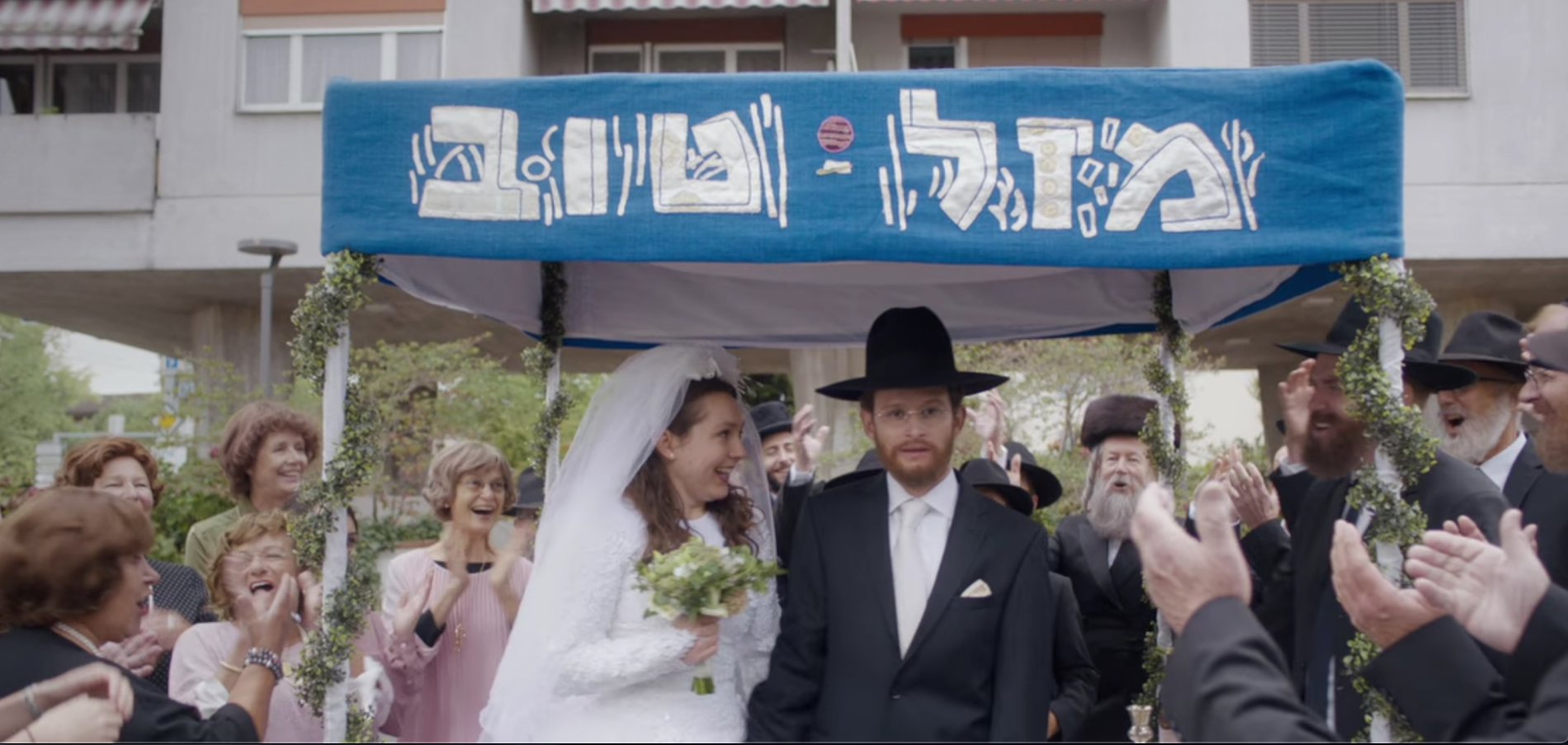
Why Netflix’s New Romantic Comedy Isn’t Funny to Orthodox Jews
Netflix Synopsis: “Pressured to marry a nice Orthodox Jewish woman, Motti is thrown for a loop when he falls for classmate Laura, who his mother will never approve of.”
Dear Netflix,
As an avid fan and writer of romantic-comedies, and an Orthodox Jew, I found the Netflix film, The Awakening of Motti Wolkenbruch to delve into anti-Semitic stereotypes, in an insensitive, crude and painful way.
Humor that paints noticeably Jewish characters as overbearing, lewd, disingenuous, manipulative, condescending, or insane, but portrays their secular counterparts as normal, decent people begs the question— Why does the humor only flow in one direction?
How are viewers to understand a storyline where a young man who makes a living chooses to live with a mother who is emotionally abusive and insane? Are viewers supposed to accept that he doesn’t consider moving out of a dysfunctional home— because his crazy mother is a typical Jewish woman? I have never met an Orthodox woman remotely like the over-the-top mother portrayed in this film. She is happy she drove her car into a German? This gets a laugh? Are viewers supposed to think that Jews secretly want to hurt Germans?
Motti goes to Israel because Israeli women are promiscuous? This is an acceptable plot point?
Motti’s told not to be picky in his marriage selection because he’s not the “King of Kings.” This reference to Jesus, in this context, makes spurious assumptions about how religious Jews relate to Christianity.
The movie was poorly researched and plot lines make no sense regarding how Orthodox communities arrange marriages. If one were to write about religious and ethnic minorities, wouldn’t such details be well-researched and authentic?
For a community that is constantly marginalized and attacked, showing our lives in such a grotesque manner with zero acknowledgement to any of the positive aspects of our traditions is problematic.
Showing spirituality through yoga and tarot, while neglecting to show any spirituality within Judaism–a religion which has inspired countless numbers of people throughout the millennium– is offensive.
But perpetuating harmful stereotypes that could lead to viewers being dismissive of Jews— and the value of their lives– is dangerous and anti-Semitic.
Sincerely,
Yael Levy
J.M. Law & Religion, Emory University School of Law
www.yaellevyauthor.com
If you found this content meaningful and want to help further our mission through our Keter, Makom, and Tikun branches, please consider becoming a Change Maker today.








6 comments
Sort by
Have not seen as yet. But I agree that too many stereotypes are portrayed with malice & ignorance. Usually a poorly educated & misinformed writer living in an echo chamber where everyone has the same secular & narrow point of view.
Just finished watching. The “Mame” is a stereotype, the father doesn’t want to make waves, the rabbi is worthless, but the “shiksa”, i.e. Laura, makes no sense. Her falling for Motti, our protagonist, is inexplicable. Their interactions on camera are trite, he’s not especially handsome, so why the attraction? Similarly the girl in Israel doesn’t seem the type to pick up Orthodox men. And Motti goes from Orthodoxy to secular with so little religious angst you wonder how grounded he is in his religiosity to begin with. There were a few chuckles, but all in all not a very honest portrayal of romance in the 21st century, regardless of what religious community is featured.
A total waste of time.
It’s not a matter of being anti-Semitic…
This movie is simply extremely unfunny. It’s all over the place in terms of whether it’s aiming to be social satire, moving family drama, a zany comedy. It simply fails, at whatever its obscure objective might be–it is neither moving, wisely perceptive, realistic or the least bit amusing.
I could write volumes about the unique pathology that apparently compels some Jews to write books or make films featuring crassly offensive stereotypes that would never pass, were the jokes directed at any other minority.
Tastes differ. Some viewers may demand very little from comedy, and may have simply chuckled their way through the movie. That’s fine for them…. but I propose that anyone who calls this movie ‘hysterically funny’ or ‘wickedly satiric‘ may themselves be a tired cliche, part of that small but disturbing subset of Jews who think that laughing hardest & loudest whenever Jews are the butt of the joke is a sign of confidence & sophistication.
They are so wrong.
I cannot understand how anyone with a real sense of Jewish pride, identity and a real understanding of Orthodox Judaism could have a good feeling about this film. It’s certainly not reciprocated—the movie did absolutely nothing to give us any idea what might compel someone to stay within this admittedly restrictive lifestyle. The protagonist Motti simply comes across as too wimpy to stand up for himself—
—until he eventually makes his stand, by sleeping with a blond “shiksa”— the laziest cliched shorthand in fiction for “Jewish boy stands up to overbearing mother”.
This sounds like a very insulting movie – can’t really see how people find this “humor” the least bit amusing because I don’t.
Reading articles like these always leave me feeling sad and hopeless. I just don’t understand why everyone hates frum jews so much. No matter how much we try and get the non jewish world to see us as fellow human beings worthy of respect, it never seems to work. Every film and documentary about Orthodox Jews seems to contain nothing but hatred and mockery of us. We can complain as much as we want and demand change like the author here is doing, but nothing ever seems to happen. Netflix still hasn’t taken the film down yet, they haven’t even attempted to apologise! I just don’t understand why we even bother trying to fight the hatred everyone else seems to spew at us. It just all feels so hopeless
In response to Daniel, and the others who wrote in about the constant barrage of negative stereotypes of religious Jews, it seems to me that the answer to “why” this is a constant motief is really quite simple. Non Jews, and secular Jews, live in an atmosphere which is constantly infused with antisemitic tropes. Often is is subtle, such as the double standard that the State of Israel is held to, the constant accusations against it and Jews and the general indifference by most people to these horrible accusations. The constant trickle of these negative images and ideas of Jews effects those who hear it, and over time, they take on a reality that is unquestioned. As a younger man, I was amazed at how many friends of mine, knowing that I was Jewish, made anti-Jewish remarks and repeated untrue “facts” about orthodox Jews. I realized that these good people were simply repeating what has been drummed into them from the time they were children. This information is also drummed into the minds of secular Jewish children, and taken as true as they grow up. Of course, secular Jews have likely never sat down with observant Jews to see what the religion is all about. If they had, they would have seen how untrue many of the stereotypes are. This is why we need people like Yael Levy to set the record straight and to educate everyone about the truth of Judaism. As long as people are unwilling to learn the truth about the beauty and meaning of Judaism, these types of mistakes will continue to be made.